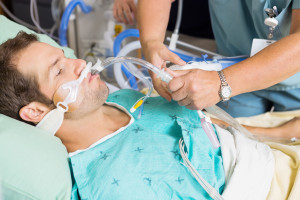 Many people do not know the difference between Urgent Care and Emergency Rooms. The main determining factor when deciding to seek treatment at Urgent Care or an Emergency Room is essentially the severity of the health problem. Emergency Rooms are designed to treat every medical condition. Urgent Care clinics are usually only able to treat minor injuries and conditions. Read more below about what situations require Emergency Rooms and which can be treated at Urgent Care.
Many people do not know the difference between Urgent Care and Emergency Rooms. The main determining factor when deciding to seek treatment at Urgent Care or an Emergency Room is essentially the severity of the health problem. Emergency Rooms are designed to treat every medical condition. Urgent Care clinics are usually only able to treat minor injuries and conditions. Read more below about what situations require Emergency Rooms and which can be treated at Urgent Care.
When to go to an Emergency Room
Emergency rooms should be visited when there is a true emergency or life-threatening situation. Emergency rooms are usually open 24 hours a day, 7 days a week and are prepared to handle trauma, diagnostic exams and surgical procedures. They have the widest range of services for emergency situations as well as access to specialists. If an individual’s health is in immediate danger from any of the following injuries/conditions, they should seek an Emergency room:
• Broken bones
• Chest pain/heart attack symptoms
• Allergic reactions to foods, animals or bug bites
• Severe breathing problems/shortness of breath
• Deep or large wounds that do not stop bleeding
• Loss of vision
• Head or eye injuries
• Vaginal bleeding during pregnancy
• Unconsciousness
• Drug overdose
• Constant vomiting
• Weakness or pain in an arm or leg
• Pneumonia
• Seizures
• Shock
• Heart palpitations
When to go to Urgent Care
Urgent Care clinics are popping up across the country. They are a great alternative when individuals are unable to see their Primary Care Physician or need to see a physician on a weekend or a holiday. Most Urgent Care centers are open late, some even 24 hours a day. If an individual is suffering from a non-life-threatening situation but that still needs to be treated right away, Urgent Care might be the ideal choice. The following conditions can be treated at most Urgent Care facilities:
• Upper respiratory or sinus infections
• Sore throats, coughs, fever or other minor illnesses
• Flu and cold
• Strep Throat
• Mild vomiting, diarrhea or stomach pain
• Bone fractures
• Twisted ankles
• Muscle sprains or strains
• Dislocations
• Vaccinations
• Lab Services and blood work
• Migraines
• Back or abdominal pain
• Asthma and COPD exacerbation
• Minor bumps, cuts, scrapes and burns
• Skin rashes
• Infections
• Infusions
• Urinary tract infections
• Animal bites
• Foreign objects in the eyes or nose
• Burning with urination
What to during a health emergency in Houston
When you are in a life-threatening situation, time can mean life or death. Waiting hours to get treatment at an Emergency Room can lead to bad outcomes and even fatalities. When you or a loved one is sick or injured, deciding where to get care is the last thing you want to worry about. It is a good idea to know where the closest Emergency Room and urgent care centers are before you need them. If you are unsure if you can make it to an Emergency Room on your own, always call 911.
OakBend Medical Center is home to the only No Wait Hospital Emergency Room in the entire Greater Houston Area. It also features the only permanently-based air ambulance in Fort Bend County. OakBend Medical Center employs board-certified doctors which treat both adults and children. They also accept most health insurance plans. Please call 281-341-3000 for more information or click here for a virtual tour of Oak Bend Medical Center’s hospital and Emergency Room. You can also click here to read more about why you should never have to wait for quality care.
Urgent Care vs. Emergency Rooms
OakBend Medical Center © 2023 All rights reserved | Site Development by: IBI Marketing
